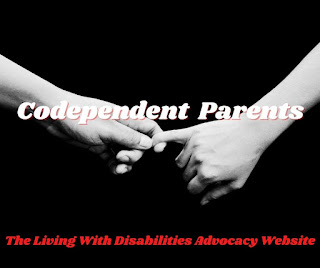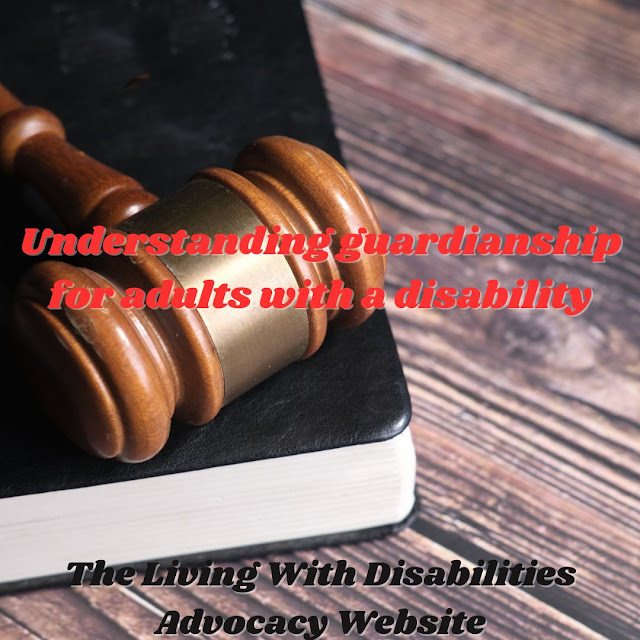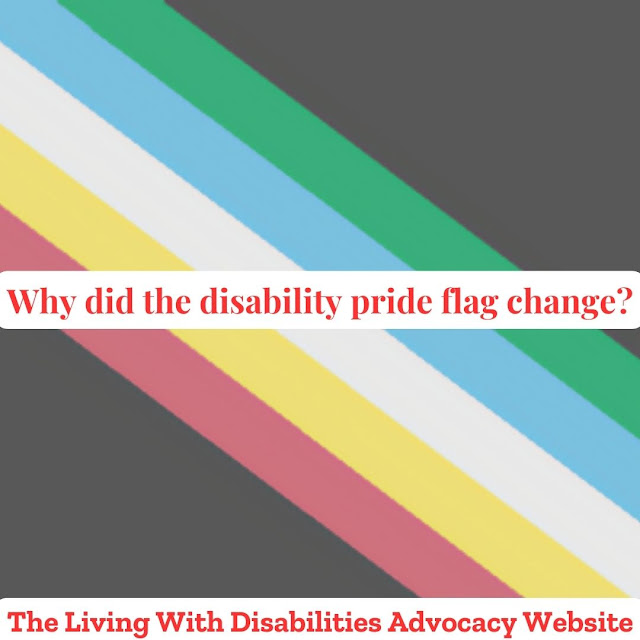Codependent parents
Today, Living With Disabilities wants to talk about codependent parents.
Some people with disabilities may deal with this and find it very hard to navigate through a parent who is codependent on them. Especially, at an adult age.
What is a codependent parent? A parent who has an unhealthy attachment to their child and attempts to exert or express control over them as a result of that attachment.
When it comes to being a child with a disability, a parent will find methods to be attached to their child because their needs were not fulfilled when they were young.
Living With Disabilities agrees with the definition of What is a codependent parent. And it's extremely toxic for the person struggling with codependent issues. There is more information about codependent parents; parents are relying on their children, and better yet, parents try to control their children.
Living With Disabilities has yet to talk about this topic because many people with disabilities go through this and it's alright to come out and speak about this.
Symptoms of codependency
1. The parent frequently refuses to view their child as an adult, preferring instead to maintain control through childlike connection. The parent's self-esteem is interlaced with the child's confidence in themselves.
In this world, adult children, are self-sufficient and do not rely on their parents to make decisions, satisfy fundamental requirements, or select how they will live each day. Codependent parents of adult children, on the other hand, never let go of that perspective and continue to try to assert control over their adult children's lives.
The parent might try to dictate educational choices, career choices, whom they should marry, how to raise their children, and where they reside (generally, near the parent), and they may expert an abnormal level of devotion and dedication. A codependent parent of a grown child will continue to be overly involved and in a toxicity caretaking position that minimizes and dismisses the grown child's talents.
This is unjust to the adult child, as it stunts their emotional, mental, and developmental growth. Adult children frequently turn to their parents for help with their difficulties, feeding the codependent parent's behavior and prolonging the cycle of emotional control and abuse.
2. A child struggles to make decisions
Since the parent inhibits independence and a healthy sense of self, an adult child raised by a codependent parent is likely to second-guess their decisions. When a child makes decisions that put the parent's sense of control in jeopardy, a codependent parent may feel insecure. This leads to a child abandoning desires and goals that are within developmental standards.
Because they were never given the flexibility or encouragement to make their own decisions as they grew into maturity, the child may hesitate while making decisions. A codependent parent will frequently go to any measure to maintain the illusion of control.
Living with Disabilities shares an anonymous story. This person prefers to go under a different name.
Sam lives at home with their family and has been living with their parents since childhood. Sam had planned to move out at a decent age when they were a teenager. But, when Sam shared their plans to move out, their parents would share all the bad reasons why they couldn't move out. Like saying, you know you can't move out because of your medical conditions and what would you do if something were to happen to you? This makes Sam feel very distant from their parents because, no matter what, a negative response will always be tossed out.
3. The parent uses persuading behavior
A codependent parent will do things to keep control over their adult child. And they will employ sorts of strategies. Manipulation is the most common way, and it is typically subtle. A codependent parent recognizes that they have abandoned part of the authority they had when the child was younger and under their control.
4. A codependent parent never sees where their wrong and will point fingers.
Rather than taking responsibility for their actions, the codependent parents will play the blame game and blame others. Another strategy to maintain control is to do so in this manner. The parent believes they are always right and that admitting they are incorrect will result in them losing control.
Instead of taking responsibility for their actions, codependent parent projects and blames others. Another strategy to maintain control is to do so in this manner. The parent believes they are always correct and that admitting they are incorrect will result in them losing control. Apologizing is regarded as a weakness and surrendering control to the adult child by a codependent parent who needs to believe they have complete control over their adult child.
And if a codependent parent apologizes, it is frequently dishonest and fused with guilt-inducing rhetoric to maintain control. This creates a relationship in which the parent is always the victim, causing the adult child to attend to the parent's want, continuing unfit behavior.
5. Adult child seeking conformation
The child of a codependent parent is not encouraged to separate and become an individual away from the parent and is raised to question their sense of self. By withholding compliments and then putting the spotlight on their child, the codependent parent usually confuses their child.
A codependent parent may feel threatened by their child's achievement, or they may keep living through their children to fulfill a desire they never had as a child. The youngster develops a poisonous dependence on the parent and a need to please him or her all of the time as a result of this. Because the parent is so committed to the child's interest or gift, the child will continuously seek validation.Young child needs validation, and they naturally seek it out. Validation may be given, but only off and on, conditionally, and with strings attached when dealing with a codependent parent. A child who does not receive consistent validation seeks it throughout his or her life, often in an unhealthy way.
In the view of the fact that others are not confirming his or her decisions, an adult child may find it difficult to make decisions or pursue a goal. In addition, adult children may continually seek parental approval since they believe they can't do anything without it. Adult children may seek harmful affirmation through friends and romantic connections, as well as via poor life choices.
Living With Disabilities now will share some toxic manipulative behavior a child will go through with a codependent parent.
- The mentality of the Victim
- It is impossible to make a mistake.
- extremely emotional.
- Never pay attention.
- Replicate their children's emotions.
- Strong emotions.
- They act like children because they want to be in charge.
- Manipulation.
Disclaimer: Living With Disabilities is not a licensed counselor. So, whatever you read make sure you get a second opinion from a professional.
When it comes to being a child or an adult with a disability, some people with disabilities are doing their best to gain independence. But, working to become independent is the most difficult situation because the child is dealing with a codependent parent.
https://wehavekids.com/family-relationships/8-Signs-You-May-Have-a-Codependent-Parent




Comments
Post a Comment